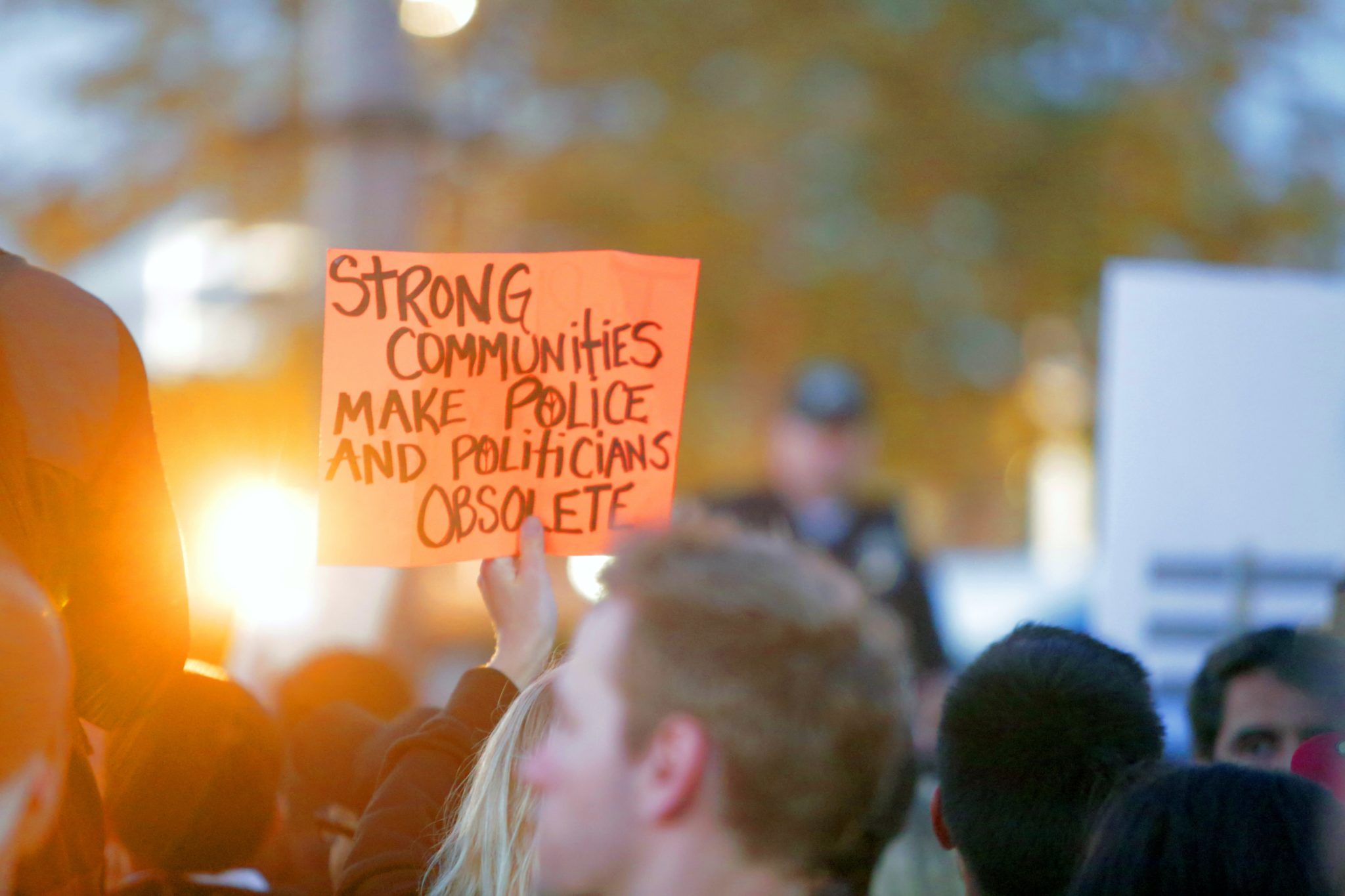Most Recent News


Popular News




Discussing the rule by none government frameworks. How they operate and how they interact with the other government frameworks.

Rule by none isn’t a governmental system. Rather, it is a lack of one. “Anarchy” is the political system that manifests the rule by none framework. The framework believes in the abolition of whatever it deems as “the state”. Instead it replaces the state with self-managed and self-governed societies based on voluntary co-op institutions.
Anarchy creates an absolute power vacuum. In essence, it tries to create stateless society. In reality, it usually ends up just masking the state with something else such as the institutions. Power, control, and wealth are still distributed within a society. They are just done so in a different manner temporarily.
Our prior frameworks had the following descriptions:
Where centralized means consolidated or to be under a central authority. Additionally, decentralized means to be distributed away from a central authority into local or smaller authorities. Thus, rule by none would be aptly described as “absolute decentralized”. Where “none” hold power, control, or wealth. Not even local authorities, traditionally decentralized agents, or local institutions.
A system that manifests from this framework has never truly existed. “Anarchy” as a government has, but they have not met the true definition. Instead, they were power vacuums where most of the items in the nation were decentralized but certain components still were centralized to make the society function. The only time when a rule by none could exist (as a very short-term singular point) would be in the middle of a war-torn nation experiencing widespread chaos under the condition that no tribal leader has yet arrived to exert influence over the region yet.
What traits are there in a rule by none? Two of them are voluntary cooperative institutions (that supposedly do not function as a governing body but must carry out duties of the state) and direct democracy. Two further are a lack of a governing body and a complete resistance to any centralization.
The rule by none, while desiring a resistance to centralization, is a massive failure at successfully accomplishing that goal. Their power vacuum ensures that they are soon engulfed by rapid centralization. Anarchy is useful to the theorists as a philosophical approach to governance. However, we are trying to build a pragmatic, practical one.
‘Anarchy’ as a political philosophy is useful for fence sitters as an easy virtue signaling type of government. It is often used by people that do not want to have to choose between actual government frameworks along with the reality of their failures and limitations. So, they simply say they are “anarchist” and include some iteration of “I don’t believe in a state” even though they likely intrinsically know that that is an impossible solution. There will always be power centers in a nation and there will always be a need for a state. A lack of any form of centralization will naturally result in the human desire for power through centralization. If not the state, then the business or the foreign entities, which will come to function as a state. To not believe this is to stay in some form of fairytale land where practical reality no longer applies. But, again, most “anarchists” don’t actually believe in this, but follow the ideology because it’s an easy philosophical cop-out by not having to choose real-world solutions which result in real-world setbacks and problems instead of an imaginary stateless utopia where everyone believes in the non-aggression principle and voluntarism where normal human desires apparently no longer apply.
Therefore, it’s not super useful to us in formation of a framework outside of the lessons it teaches. But those lessons are still very important.
The anarchist mindset may not be the most viable option when seeking a long-term governmental form. But that does not mean it is useless. The anarchists notice of the importance of community is essential. Their rejection of both collectivism and individualism is important. The unification of communities can offset some risks produced by individualism and disunity. Communities are also the building block of any government. By allowing them the freedom to cooperate in a fashion similar to a rule by none, we would produce very strong vanguards for any nation and a very tight-knit, communitarian mindset. This focus on community from the top-down is something that is rarely recognized in other frameworks or systems. Other frameworks focus on the individual or the government. It could be argued that in theory the rule by none focuses on the individual, but in practice it only does so through the community. This is an important focus. Just as important as the cultural enclaves that the rule by none produces. Even antiqued governments such as tribalism showcase how humans are pre-programmed to desire unity in their chosen communities. This practice is imperative to a sustainable government as it is the only way we will ever cement the power of people together against the centralizers and degenerates. Power in the community is power in the government. But our people still need the tools to do so. Absolute decentralization does not give them that toolset.
So, we may not be able to build off this framework. It may not even be a system in itself. But we can take lessons from its short, mostly philosophical existence to put toward a stronger, more viable system. From it, we take their community focus and their unique enclaves.
Read Next:
The Isolated Class And The Illusion Of Competition In Capitalism
Key Traits Of A Centralizer: The Four Groups
Individuals Acting Collectively Versus Collectivism
If you enjoyed this article, bookmark the website and check back often for new content. New articles most weekdays.
You can also keep up with my writing by joining my monthly newsletter.
Help fight the censorship – Share this article!

(Learn More About The Dominion Newsletter Here)